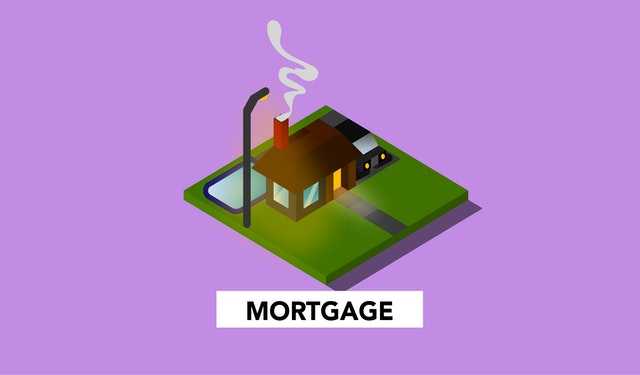Property Investment: What Is Points In Mortgage

Mortgage points are a percentage of a loan's total amount (one point equals 1 per cent of the loan amount).
What Are Mortgage Points and How Do They Work?
Mortgage points are a one-time fee paid when you close on your loan, but they can also be used to negotiate a lower interest rate.
.jpg)
Borrowers can typically unlock mortgage rates of 0.25 per cent lower by paying 1 per cent of the total interest to be charged over the life of the loan upfront.
It's critical to realize that points do not equal a larger down payment. Rather, borrowers “purchase” points from a lender in exchange for the right to a lower interest rate for the duration of their loan.
Purchasing points does not help you build equity in a property; instead, it allows you to save money on interest.
Points on a Mortgage
Mortgage points are divided into two categories: origination points and discount points.
A fee charged by a lender as part of their revenue is known as an origination point.
Discount points are points that are used to “buy down” the interest rate.
Consider the following scenario: Let's say the interest rate on a no-point loan is X percent. The borrower wants to reduce the interest rate by .25 percent and is willing to pay one point (1 percent of the loan amount) to do so. They can reduce the amount of interest they pay over the life of the loan by paying the extra money upfront.
.jpg)
What Are Origination Fees
Many lenders include an origination fee in their quotes because they must disclose a 1% fee and then give a corresponding 1% rebate to get a true "no point" loan.
How Do They Work?
The Dodd-Frank Act's disclosure laws are the reason why lenders do it this way. If the lender does not disclose a fee upfront, it will not be able to charge it later. Failure to disclose an origination fee (or points) before locking in loan terms binds the lender to those terms.
This may appear to be a positive thing. If interest rates rise during the loan process, you might be forced to accept a higher rate.
Advantages of Mortgage Points
1.) People buy points to reduce their interest rate and lower their loan's overall cost.
2.) Points can add thousands of dollars to your closing costs, but the large upfront cost may be worth it if you stay in the house long enough to save money from the lower interest rate.
Adding $2,000 to your down payment could save you tens of thousands of dollars over the life of your loan. Paying points, on the other hand, may not be worth it if you plan to sell or refinance your home before you break even.
.jpg)
3.) Points can also help you save money on your monthly payments. If your monthly mortgage payment is putting a strain on your finances, mortgage points may be an option. Lower monthly payments are the result of a lower interest rate.
4.) If you decide to buy mortgage points, you may be able to save money on taxes. You may be able to deduct the cost of the points on your taxes because mortgage interest is tax-deductible and points are considered prepaid mortgage interest.
Check out the IRS rules on mortgage point benefits and speak with a qualified tax professional to learn more about the deductions you may be eligible for.
What you should know about mortgage points
The terms of buying points can differ significantly from one lender to the next. Here are a few things to think about:
The interest rate reduction you receive for purchasing points is not guaranteed and is determined by the lender and market conditions.
You might be able to get a tax break if you buy points. Consult a tax professional to see if this will have an impact on your tax situation.
Adjustable-rate mortgages (ARMs)
ARMs typically offer a discount on the interest rate only during the first fixed-rate period. Calculate your break-even point to ensure that it occurs before the fixed-rate period ends.
If rates rise during the adjustable period for Bank of America customers, however, your rate will be lower based on the points you initially purchased.
.jpg)
Make sure you run the numbers if you have to choose between a 20% down payment and buying points. You may be required to carry private mortgage insurance if you make a lower down payment (PMI).
Check to see if the benefit of buying points and lowering your interest rate would be offset by this additional cost.
Negotiating points on a mortgage, you have the ability to bargain points on a mortgage. Even if you didn't ask for discount points, lenders may add them to your loan offer in order to make their rates appear lower.
In fact, when looking for a lender, it's a good idea to request a loan with no points. As a result, you'll be able to compare one lender to another on an equal footing.
You can always decide to buy discount points after you've decided on a mortgage lender to work with.
Author Bio
Contributor comprises full-time and freelance writers that form an integral part of the Editorial team of Hubslides working on different stages of content writing and publishing with overall goals of enriching the readers' knowledge through research and publishing of quality content.
Article Comments
No Comments!
At present there are zero comments on this article.
Why not be the first to make a comment?
Similar Articles
Sponsor
Search Articles
Experts Column
Latest Articles
Featured Articles
Most Popular Articles












